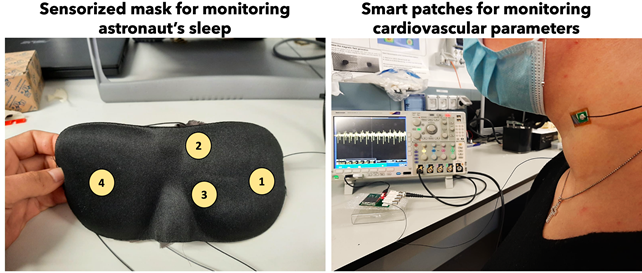Piezoelectric Flexible Smart Sensors for monitoring vital parameters and sleep of astronauts
Research domain: Nanomaterials - Subtopic: Opto-electronicsThe challenging conditions in which the astronauts live during their space missions can produce undesired effects on their health. This is leading to the development of new devices for health monitoring but, currently, their dimensions, cost and usability prevent a continuous and effective employment on the astronaut’s body. Recently, together with the wide commercialization of wearable devices, a new class of space technologies has been proposed, typically based on sensorized garments. They are able to measure different health parameters such as temperature, posture, hearth rate and pulses, but they typically fail in being totally unobtrusive and specific. This project idea relies on the development of electronic skin patches to be applied to selected positions of the skin of astronauts or inside a sleep mask in contact with the skin, to monitor specific parameters such as cardiovascular signs, i.e. blood pressure and systolic/diastolic events in blood pressure wave on the carotid artery and at the periphery of the body, sleep and muscles activity, for monitoring swallowing, respiration and eyes activity, in a completely unobtrusive way and without interfering with the astronaut’s normal movements. The technology will allow to compare health parameters at zero gravity to those on earth. The proposed sensors will rely on biocompatible and flexible piezoelectric materials, synthesized by physical vapor deposition (reactive ion sputtering) and postprocessed in clean room in order to produce skin compliant sensors. The transducers will be integrated with electronics for signal readout/conditioning, power management and wireless communication in order to transfer the acquired data to portable devices such as smartphones or data logger.
Project funding: European Space Agency (ESA)

